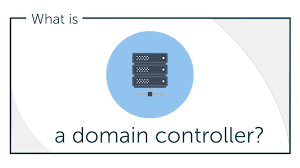Why Domain Controller is important?
-
Domain controllers contain the data that determines and validates access to your network, including any group policies and all computer names.
Everything an attacker could possibly need to cause massive damage to your data and network is on the DC, which makes a DC a primary target during a cyberattack.
-
saves customer data on their network needs a domain controller to improve security of their network.
Benefits of Domain Controller
-
Centralized user management
-
Enables resource sharing for files and printers
-
Federated configuration for redundancy (FSMO)
-
Can be distributed and replicated across large networks
-
Encryption of user data
-
Can be hardened and locked-down for improved security
Limitations of Domain Controller
-
Target for cyberattack
-
Potential to be hacked
-
Users and OS must be maintained to be stable, secure and up-to-date
-
Network is dependent on DC uptime
-
Hardware/software requirements
How to Set Up a Domain Controller
-
Configure a stand-alone server for your domain controller.
- If you are using Azure AD as your domain controller you can ignore this step.
- If not, your DC should act exclusively as a DC.
-
Limit both physical and remote access to your DC as much as possible.
- Consider local disk encryption (BitLocker)
- Use GPOs to provide access to the SysAdmins in charge of administering Active Directory, and allow no other users to log in, either on the console or via Terminal Services.
-
Standardize your DC configuration for reuse
References
- What is a Domain Controller, When is it needed + Set Up. (2021). Retrieved from https://www.varonis.com/blog/domain-controller/.
- Domain Controllers Overview. (2021). REtrieved from https://www.n-able.com/blog/domain-controllers-overview.
- What is a Domain Controller? Definion & Function. (2021). Retrieved from https://study.com/academy/lesson/what-is-a-domain-controller-definition-function.html.


